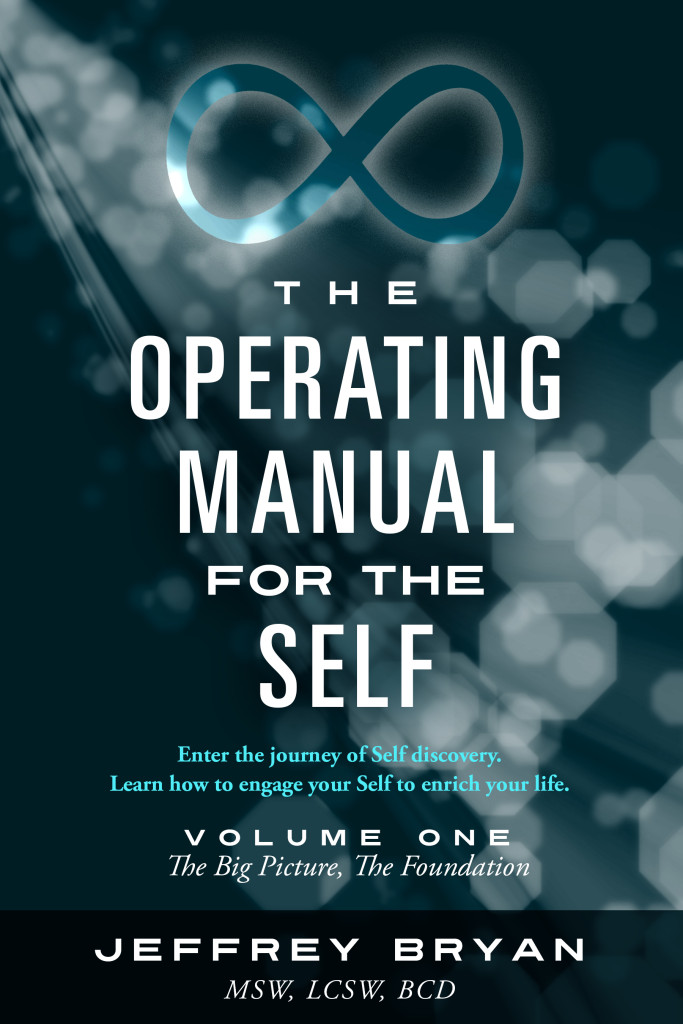Choice Pdf
INTRODUCTION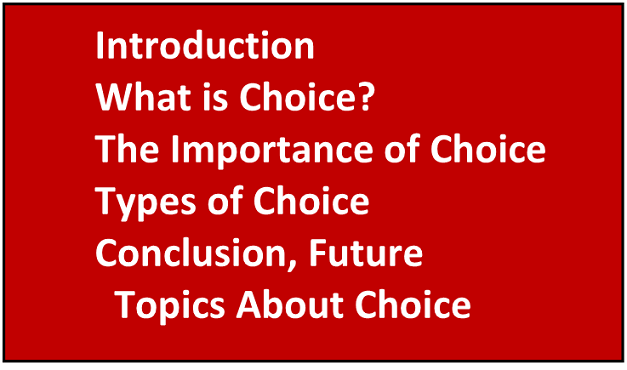
The Letters continue to empower us to create the best life we can. In the spirit of empowerment, let’s consider choice.
Choice is profound yet easily overlooked. We do it so automatically, like breathing, that we don’t notice it. Choice appears to be simple but is in reality rather complex. What is profound about choice? Along with belief, it is one of the two most important ways that we create our lives. An exploration of choice is the necessary follow up to our exploration of beliefs. In the Letter about changing belief, we asked the question, “What beliefs should we change?” This question invites a choice—choose a belief to change. In the moment of choice we are creating the life we live. Some choices change the direction of our life, while others keep things the same. Choosing to make an important change in our life can be a profound moment that requires awareness in order to make a conscious choice. Of course we have less profound moments in our life where it is not as important to make a conscious choice.
There is much in our life that happens automatically and no choice is necessary, like breathing or blood circulating throughout our body. But there is much more that is a choice.
Point of Empowerment: Choice is a profound process that, along with belief, creates every moment of our life. We are continually answering the question. “How will I spend this moment of time?”
Point of Empowerment: Powerful choices are conscious choices make with awareness.
WHAT IS CHOICE?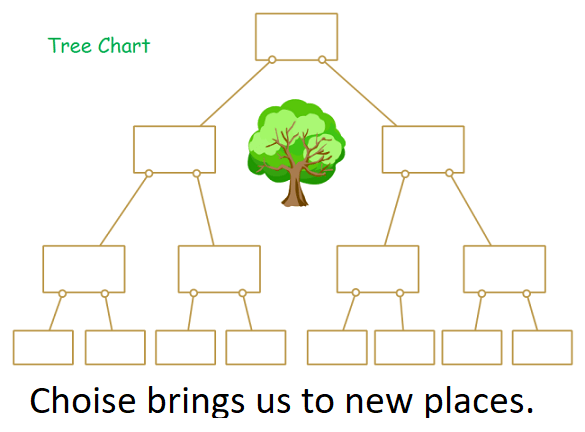
In any moment of time we are presented with alternatives. Choice is the action we take when we decide to make one of those alternative part of our life. I am hungry, do I want an apple or hamburger? I need to be somewhere shortly? Should I leave now or wait five minutes? How much time should I spend watching TV, 15 minutes or an hour. Do I marry this person or not? Should I have the surgery the doctor recommended or not?
The process of choice begins by weighing alternatives. We then say yes to one alternative and no to something else. Do I want to go to the movies or out to dinner—say yes to the movies, no to dinner? Do I want to take this job, yes or no? What we say yes to, we bring more of into our life. What we say no to we have less of in our life. We invest our time and energy into the alternative that we want more of.
We then follow one choice with another one that answers the question, “what will we do about the choice we just made?” I decide to look at something. I then look at it. I decide to get something to eat. I walk into the kitchen. I decide to kiss my partner. I kiss my partner. It is possible that I choose not to follow up on my choice, but instead “change my mind.” I then face another choice—what to do about the situation that needed an initial choice. This description my sound trivial, but in understanding the process of choice we become more in control when we face important choices that need to be made. We understand how to slow the process down and how to increase the influence we have over the course of our lives.
THE IMPORTANCE OF CHOICE
Point of Empowerment: Choice is always present in the moment that precedes every action we take. This is where freedom lives.
We face choice every moment of our life because we are continually answering the question, “How will I spend my next moment of time?” If we are on “autopilot,” not being aware of our choices, we are allowing our subconscious mind to make the choices of what our life is going to be like. Sub-conscious means exactly that, below the level of awareness. If you are thrilled with every moment of your life—great. If you see room for improvement than you must take control of your choices and make more of them with greater awareness.
We cannot avoid making choices. Life is structured this way since we have limited resources—time and energy. We may think that we can avoid making choices but this is not true. If you think that you are not making a choice you are just repeating the choice you made a moment ago. Try to not make a choice between the alternatives you face at this moment. In all honesty you will see that this is not possible. In addition, we are always dealing with the consequences of our choice. Life works this way though we may not clearly see the consequence of our choice.
Do we always have a choice? People say, “I had no choice,” but is that correct? We may not like the alternatives we have, but we always have a choice. We may not be able to identify when we made a choice and may be dealing with the consequence of a previous choice, but we always have a choice. We can always choose our reaction to a situation that we have created with previous choices.
Point of Empowerment: Understanding the process of choice and the consequences of choice, gives us enormous power to shape our life the way we want it to be.
Practice: Before your next action (from the simplest to the most complex) say, “I choose.” “I choose to breath. I choose to eat an apple. I choose to go to work. I choose to ask for a raise. I choose to tell my partner, spouse, and children I love them. I choose to have heart surgery.” This practice creates the habit of making aware choices.
TYPES OF CHOICE
Understanding the different types of choices we make can help us become more aware of our choices. Here is a description of some of the choices we make.
- There are choices that bring us more of what we desire in life. The key to this is making choice with awareness of our alternatives and awareness of the moment of making a choice. We could call this aware choice. For example, “Since I love having friends, l choose to search for new friends.”
- There are choices that lead us to where we want to go in the future. Therefore, we want to have some ideas about what we want for our future and how we will get there. We call these future oriented choices. “Since I want to earn more money, I choose to obtain additional training in my field.”
- There are choices that bring us increased happiness, joy, success, and fulfillment. To make these choices we need to know ourselves, to know what brings us happiness, joy, success, and fulfillment. We could call these self-aware choices. “Since playing with my grandson brings me joy, I choose to play with him more often.”
- There are choices that make us more effective in living life and make us better people. We could call these self-improvement choices. “Since experiencing more of my feelings enriches my life, I choose to learn how to do this.”
- We make choices about something we want, like losing weight for example. Then we make the follow up choices that put our initial choice into action, like creating and implementing an eating plan. We could call our initial choice a primary choice, and the follow up choices secondary choices. “Since I value my time, I choose to make better use of my time. I choose to make plans for using my time.”
- We make choices about “how much” we will have in our lives: how much fun, happiness, and success on one hand; and how much pain, struggle, and hardship on the other hand. We could call these volume choices. “I choose to increase my happiness and to decrease the amount of struggle in my life. I will discover what makes me happy and do more of this. To create less struggle, I will learn how to relax.”
- We make choices about “the big picture” of our life. For example, one choice might be, “Am I going to be a “winner” or a “loser” at living life?” Or, “Will I be happier and more successful than my parents or will I limit myself to what they have accomplished?” We could call these life script choices or destiny choices.
- There are impulsive choices. These are choices made almost immediately, without conscious thought. They can be either in response to a situation or to initiate an action. Impulsive choices can be constructive or destructive. For example: in anger I punched my friend; or, with affection I kissed my friend.
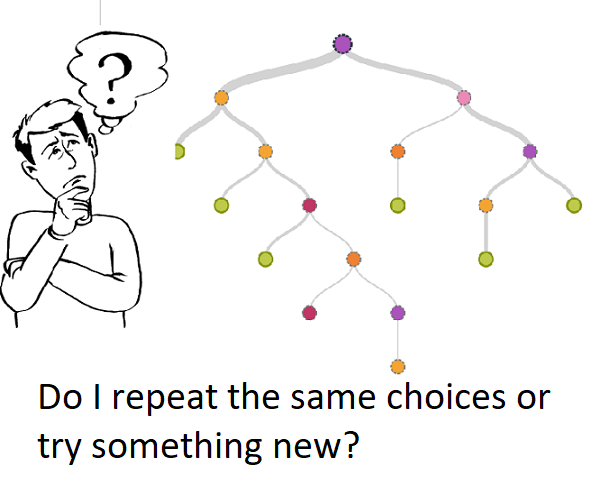
- There are choices that put our highest values into practice. These are values choices. “Since I value honesty, I choose to tell myself the truth about who I am, the positive and negative, my strengths and weaknesses.”
- There are choices about what we will allow ourselves to feel. These are feeling choices. “Since I will not allow myself to feel anger, I suppress and repress my angry feelings, hiding them from myself.” Or, “Since I love feeling love, I choose to seek people to love.”
- There are choices made on “autopilot.” We could call these default choices. “I have my daily routines which I almost always follow.”
- There are times when we make the same choice every time we face a specific choice. These are habit choices. “I have two cups of coffee each morning.”
- There are choices that we must make in a certain way. These are compulsive choices. “I choose to exercise two hours a day, every day, because if I don’t, I feel anxious.”
Practice: Choose a period of time. Choose to become aware of your moment to moment choices. Categorize them according to the description of the types of choices.
Practice: Become aware of making choices by identifying the alternatives you have in each moment.
CONCLUSION
We have shown how important choice is in creating our life by defining what choice is and by explaining how it operates. In future Letters we will consider these topics: putting choice into action, evaluating the outcomes of our choice, dealing with the consequences of our choices, resistance to conscious choice, why we make the choices we do, and how to make better choices.
